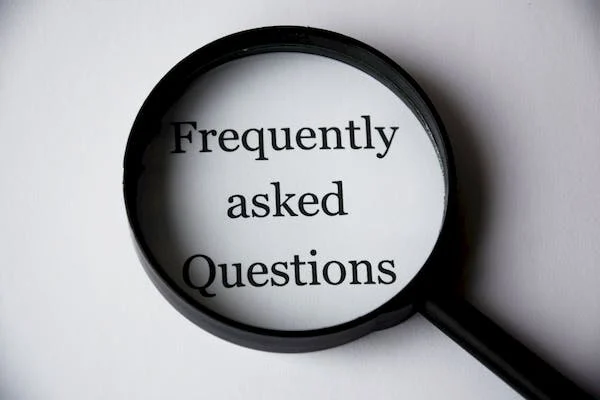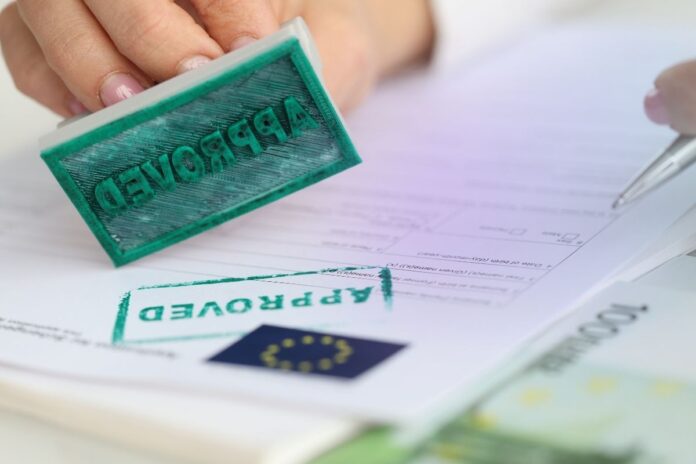Demystifying EU work viasas and permits: Uncover every visa option for working in Europe! Explore work permits, work visas, and EU eligibility requirements. Find your perfect job match & permit now!

What is an EU work Permit?
An EU work permit, sometimes called an EU work visa, is an authorization that allows individuals from non-European Union (EU) or European Economic Area (EEA) countries to work within the EU. It’s a legal document that permits foreign nationals to engage in employment within the member states of the EU.
This term can be interchangeably used with employment visas. The specific requirements and application process for an EU work permit can vary depending on the country and the individual’s circumstances. Generally, individuals must apply and may need to have a job offer from an employer in an EU country, meet certain qualifications or education requirements, and demonstrate that they will not take a job that could be filled by a European citizen. The permit, including the highly-valued EU Blue Card, may also be tied to a specific employer or job, and individuals may need to renew or update their permit periodically.
Who needs a Work Permit/Visa in Europe?

Anyone who wishes to work in Europe and is not a citizen of an EU or EEA country typically needs a work permit, like the EU Blue Card, or a visa to work in Europe. This includes individuals from non-EU/EEA nations who wish to work temporarily or establish long-term residence in a European country.
Citizens of non-EU countries generally need both a work permit and a visa to work in the European Union. However, there are some exceptions:
- Family members of EU citizens: You may not need a work permit if you are a family member of an EU citizen, depending on your specific relationship and national regulations.
- Citizens of specific countries: Certain countries like Switzerland, Norway, Iceland, and Liechtenstein have free movement agreements with the EU, allowing their citizens to work in most member states without permits.
However, non-EU citizens generally require:
- Work permit: For long-term employment exceeding 90 days in a single EU country.
- Work visa: For shorter-term employment or freelance work under 90 days.
Work in Europe : Types of EU Work Permits
There are various types of EU work permits, each tailored to specific circumstances. Common categories include temporary work permits, permanent work permits, intra-company transfer permits, and highly skilled migrant permits. The type required depends on factors such as the nature and duration of the employment.
- Country-specific: Each EU member state has its own system for issuing work permits, with different categories based on skill level, industry, and employer sponsorship.
- Seasonal work permit: For temporary employment in specific sectors like agriculture or tourism.
- Highly skilled worker permits: Offers Blue Card and is available for highly skilled professionals from non-EU countries, with in-demand skills, often offering fast-track application processing and access to multiple EU Countries.
- Company-specific permits: Tied to a specific job offer and employer.
- General work permits: More flexible, allowing holders to seek employment after arrival.
- Self-employment permits: For those wishing to establish their own business.
Difference Between EU Work Permit and Europe Work Visa
While both a work permit and a work visa allow foreigners to work in Europe, they serve different purposes. A work permit is an official document from the employer’s country, authorizing employment. In contrast, a work visa is an entry permit granted by the destination country, allowing the individual to enter and stay for the purpose of work.
- Purpose: Work permits grant long-term residence and employment rights, while work visas are for temporary stays and specific jobs.
- Validity: Work permits often have longer validity periods and renewal options, while work visas typically expire after a set period.
- Application process: Work permits may involve more complex procedures and documentation compared to work visas.
How to Get an EU Work Visas & Permits
- Identify the relevant permit/visa category: Based on your qualifications and intended employment.
- Check requirements: Each permit/visa has specific eligibility criteria and documents needed.
- Gather documents: Proof of qualifications, employment contract, financial statements, health insurance, etc.
- Apply through the relevant embassy/consulate: Submit all required documents and pay fees.
- Attend an interview (if required): Explain your purpose and demonstrate your qualifications.
- Await decision: Processing times can vary depending on the country and permit/visa type.
Where to apply for a European Work Visa

You typically apply at the embassy/consulate of the EU country you wish to work in. Some countries allow online applications or accept applications upon arrival under specific conditions. If you are a Nigeria check out this 18 Visa On Arrival Countries For Nigerian Citizens.
What are the requirements for a European Work Visa?
Requirements vary by country and permit type, but generally include:
- Valid passport: Ensure it has sufficient validity for your intended stay.
- Proof of financial resources: Demonstrate sufficient funds to support yourself during your stay.
- Health insurance: Proof of valid health insurance covering your stay.
- Educational qualifications: Documents proving relevant qualifications for the desired job.
- Employment contract/offer: For work permits, a confirmed job offer is usually mandatory.
- Visa application fee: Payment of the relevant application fee.
Can I extend an EU work permit?
Yes, under specific conditions. Most work permits have renewal options, usually requiring proof of continued employment and adherence to permit terms. Some permits automatically renew, while others require separate applications.
How do I get a European work permit?
The process depends on your specific situation and chosen permit type. Generally, follow these steps:
- Research work permit options: Identify the most suitable permit based on your skills and career goals.
- Contact relevant authorities: Get precise information about application procedures and requirements.
- Gather necessary documents: Ensure you have all required documents as specified by the authorities.
- Submit your application: Pay any fees and meet deadlines.
- Attend an interview (if applicable): Prepare for a potential interview where your application and suitability may be assessed.
- Await decision: Be patient and keep track of your application status.
What Is the Easiest Country to Get a Europe Work Visa?

There’s no universally “easy” country, as application processes and requirements can change constantly. However, some countries may be more accessible for specific professions or offer streamlined procedures. Research available options based on your skills and consider consulting migration specialists for detailed guidance.
Remember, this is just a starting point. You should always research the specific regulations and requirements for the country you wish to work in.
I hope this comprehensive content addresses your questions and provides a valuable resource for navigating EU work permits and visas.
FAQs

Q: Do I need a visa to work in Europe?
A: It depends on your nationality and the country where you plan to work. Citizens of EU/EEA countries typically do not need a visa to work in other EU countries, while non-EU/EEA citizens may need a work visa or permit. Make sure to check the specific visa requirements of the country where you plan to work.
Q: How can I get a European work visa?
A: To get a European work visa, you will generally need to have a job offer from an employer in a European country. The specific process and requirements for obtaining a work visa vary by country, so it’s important to research the visa application process for the particular country where you plan to work.
Q: What is a Schengen work visa and how can I get one?
A: A Schengen work visa allows you to work in any of the countries within the Schengen Area. To obtain a Schengen work visa, you will typically need to have a job offer from an employer in one of the Schengen countries and apply for the visa through the consulate or embassy of that country. Here are 15+ best Countries to get a Schengen Short Stay Visa.
Q: What is the cost to get an EU work visa?
A: The cost to obtain an EU work visa can vary depending on the country and the type of visa or permit you are applying for. In addition to the visa application fee, you may also need to factor in costs for document processing, medical examinations, and other related expenses.
Q: Do I need an employment visa to work in Europe?
A: Yes, if you are a non-EU/EEA citizen, you will typically need an employment visa or work permit to legally work in a European country. The specific requirements and application process for an employment visa vary by country.
Q: What is the EU Blue Card and how can I apply for it?
A: The EU Blue Card is a work and residence permit for highly skilled non-EU/EEA nationals to work in an EU country. To apply for an EU Blue Card, you generally need to have a job offer or employment contract in a highly skilled occupation, as well as meet certain eligibility criteria set by the specific country where you plan to work. Here is a step-by-step guide to getting an EU residence permit in 90 Days.
Q: What are the visa requirements for working in Europe?
A: Visa requirements for working in Europe vary by country and can depend on factors such as your nationality, the type of work you will be doing, and the specific visa or permit you are applying for. Common requirements may include a valid passport, a job offer from an employer in the respective country, and proof of sufficient financial means.
Q: What is a critical skills employment permit and how can I obtain one?
A: A critical skills employment permit is a type of work permit that allows highly skilled non-EU/EEA nationals to work in Ireland in occupations experiencing a skill shortage. To obtain this permit, you will typically need to have a job offer in a qualifying occupation and meet the specified criteria set by the Irish Department of Business, Enterprise, and Innovation.
Q: What is the process to apply for a work visa in Europe?
A: The process to apply for a work visa in Europe varies by country. Generally, it involves obtaining a job offer from an employer in the respective country, meeting the visa requirements set by the immigration authorities, and submitting the required documents and application forms to the relevant consulate or embassy.
Q: What are the work conditions when working in an EU country as a non-EU citizen?
A: The work conditions for non-EU citizens working in an EU country depend on the specific labor laws and regulations of the country where they are employed. It’s important to research and understand the labor rights, employment contracts, and other pertinent work conditions before starting employment in an EU country.



hello my name is Adel am 28 years am looking for any job offer in EU I got experience at fixing installing network lines fiber optics and coaxial cables been a trainee for two years I worked many other positions such as janitorial farming carwash waiter ect am looking for help with any job offer to settle and make a better future am from Algeria can anyone plz gelp